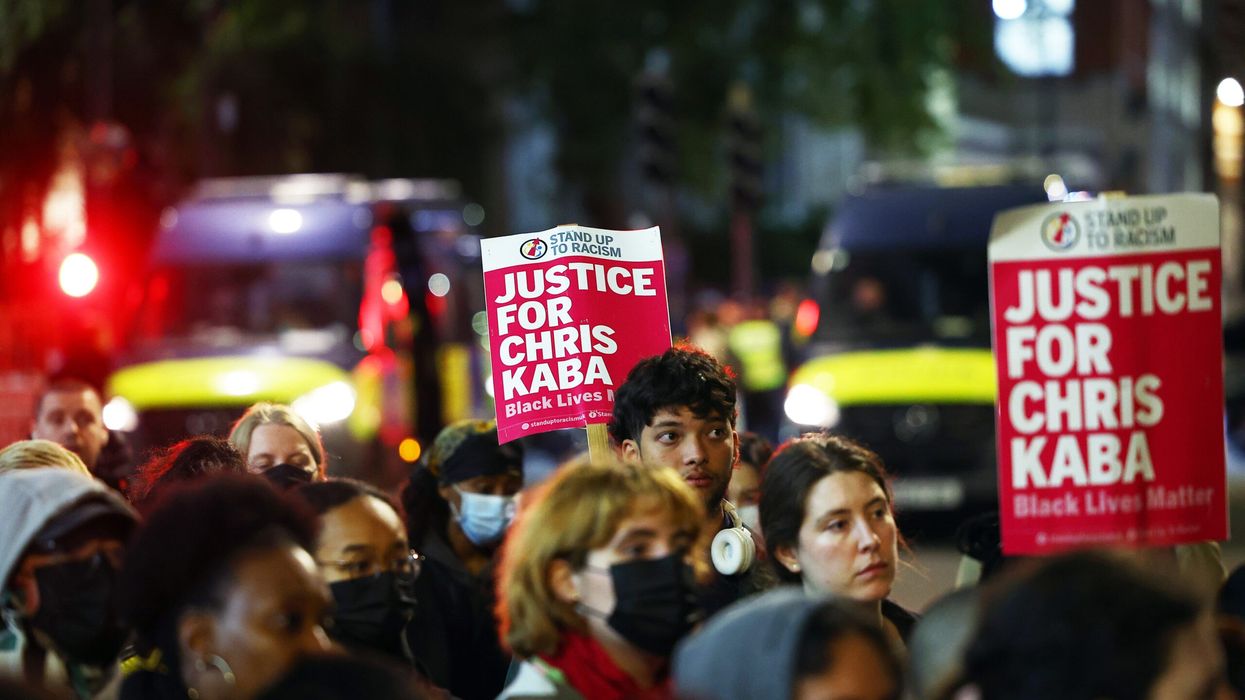A POLICE officer who fatally shot Chris Kaba, a 24-year-old black man, has been acquitted of murder after a trial at London’s Old Bailey court. The shooting occurred during an attempt to stop Kaba’s vehicle in south London two years ago.
On Monday, crowds gathered outside the court, chanting "Say his name – Chris Kaba" and "No justice – no peace." Some held placards demanding "Justice for Chris Kaba."
Kaba was shot in the head by Metropolitan Police marksman Martyn Blake, 40, in September 2022, in the Streatham area of London. He died from a single gunshot wound.
Blake was briefly overcome with emotion as the jury returned a not guilty verdict after three hours of deliberation. Kaba’s family remained silent in the courtroom but later expressed they were "devastated" by the outcome, vowing to continue seeking justice.
In a statement, campaigners Temi Mwale and Kayza Rose from the Justice For Chris Kaba Campaign said the verdict was "painful proof that our lives are not valued by this system" and that it "reinforces the harsh reality that police can kill without consequence."
Kaba’s death has sparked protests from family and supporters, with backing from Inquest, an organisation that campaigns against state-related deaths, including those involving police. Inquest’s director, Deborah Coles, said, "We know that Chris' death is not an isolated case but part of systemic racism and stereotyping that equates black men with dangerousness."
'Split second decision'
The decision to charge Blake had led to a walkout by many of his firearms colleagues in the Metropolitan Police, with the army placed on standby to step in if needed. Officers argued that the risk of being taken to court over fatal shootings would deter them from volunteering for firearms duty.
Met Police Commissioner Mark Rowley responded to the verdict by acknowledging Blake's "huge personal and professional sacrifice" since the incident. He said Blake made "a split-second decision on what he believed was necessary to protect his colleagues and to protect London."
Rowley emphasised that while no officer is above the law, the system for holding police accountable is "broken." He expressed concern for officers who, he said, face a lack of support for doing their jobs, adding, "The more we crush the spirit of good officers, the less they can fight crime that risks London becoming less safe."
Prosecutors had argued during the trial that Blake’s actions were "not reasonably justified or justifiable."
In England, Scotland, and Wales, police are not routinely armed, and only a small proportion are authorised to carry firearms. In the year to March 2023, there were 18,395 police firearms operations, and guns were deliberately fired in just 10 incidents, with three fatalities.
Blake shot Kaba through the windscreen of an Audi Q8, a vehicle that had been involved in a shooting the previous evening. The car was blocked by other police vehicles at the time, and the court was told Kaba attempted to drive away. Blake testified that he fired his weapon because he feared for the safety of one of his colleagues.
(With inputs from AFP)




